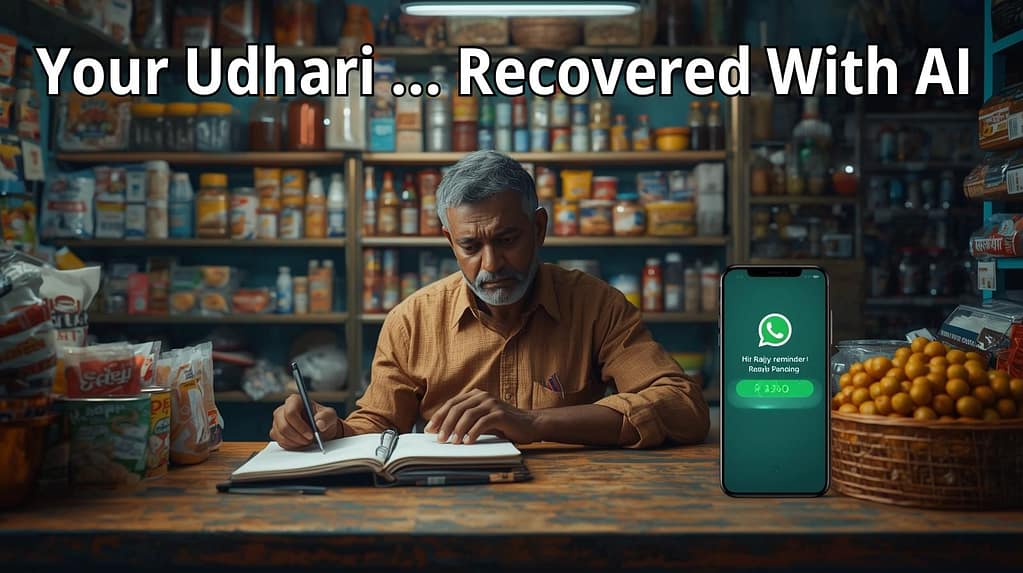AI for Small Businesses is transforming the way shopkeepers, kirana store owners, and small entrepreneurs run their daily operations. The biggest pain isn’t always stock or pricing it’s unpaid bills, endless WhatsApp messages, and hours wasted on manual tasks.
That’s where AI payment reminders come in. With nothing more than a Google Sheet and a simple AI integration, business owners can send polite, automated WhatsApp reminders that make customers feel respected while ensuring faster payments. Pair this with other AI productivity tools like automated reporting, inventory tracking, and smart customer communication, and you unlock hours of free time every week.
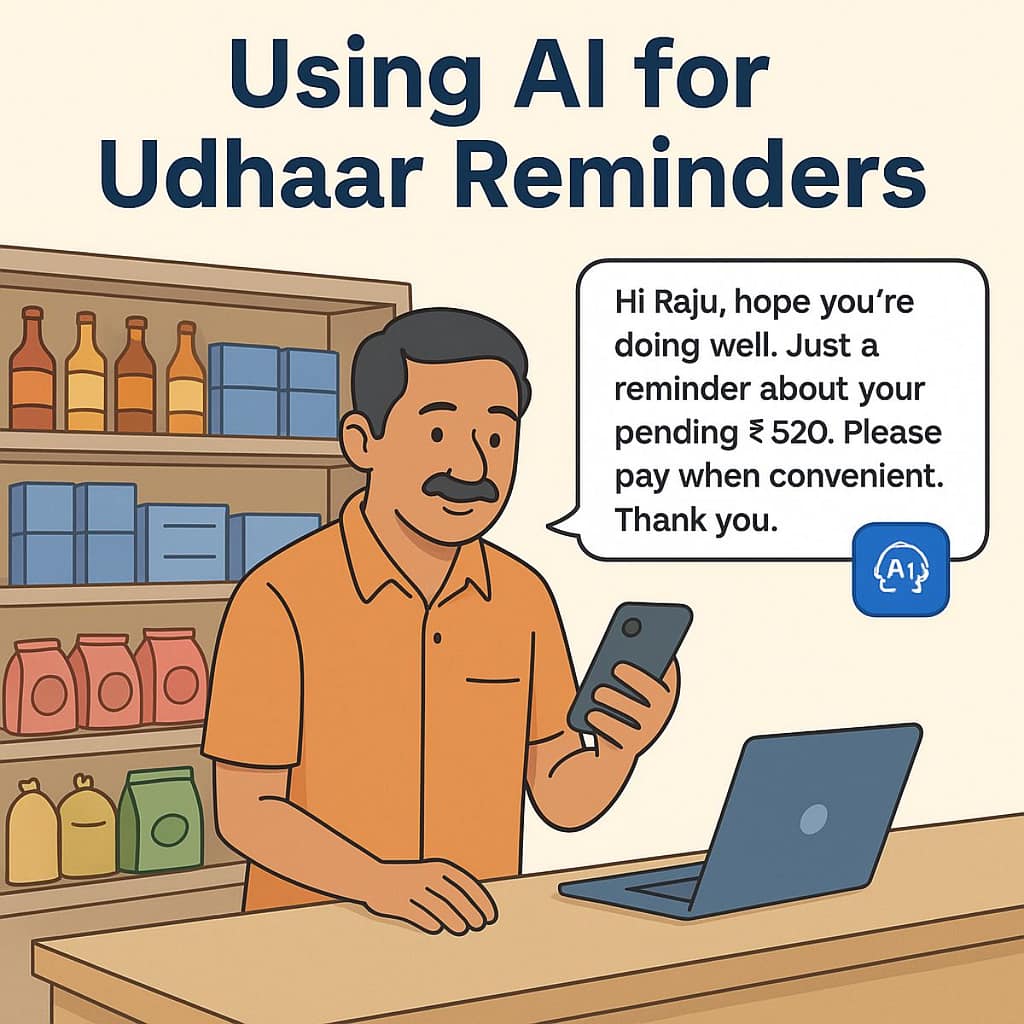
Even AI for kirana stores is now accessible at the cost of a pizza. The future is clear: small businesses don’t need to work harder, just smarter — with AI as their assistant.
The Everyday Struggle of Udhaar
Every small business owner in India knows this scene. A trusted customer walks in, fills a bag of groceries, and casually says, “Bhaiya, udhaar mein likh lo.” You nod, write it down in your little notebook, and carry on.
But by the end of the week, your notebook is overflowing with names and numbers. Some customers pay back on time, many don’t. You find yourself sitting late at night, flipping through pages, wondering how much money is stuck and whether you should call that one customer who hasn’t paid in weeks.
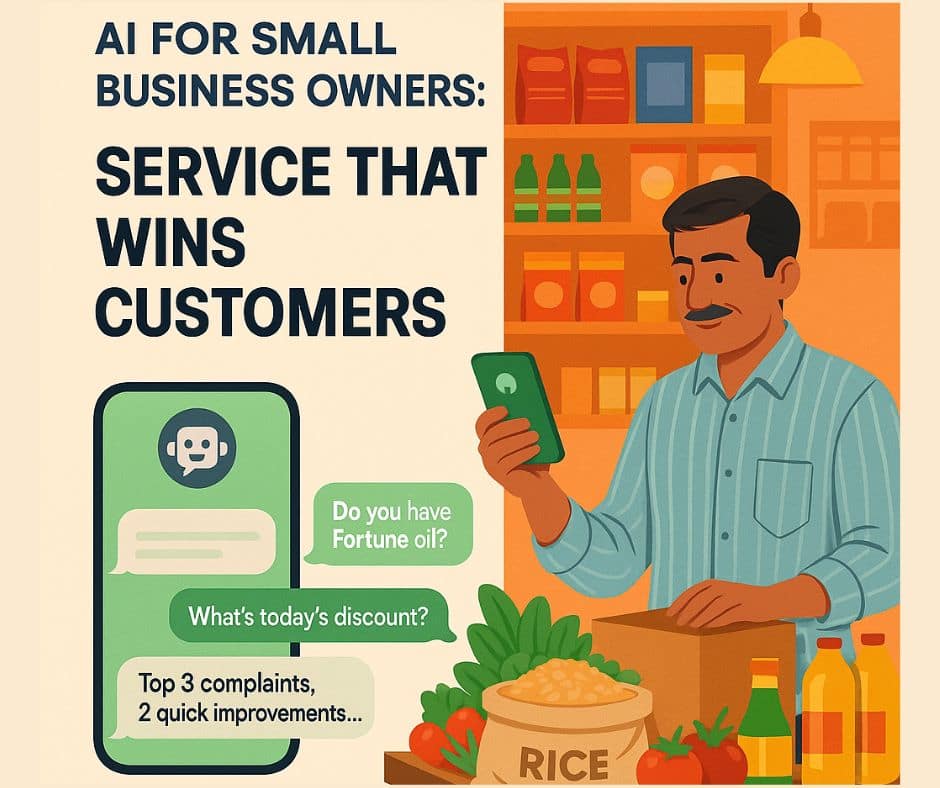
The stress isn’t just about the money. It’s about the awkwardness of asking. One wrong word, and you might lose a customer forever. This is the hidden burden of udhaar management.
Why Udhaar is More Than Just a Money Issue
On the surface, udhaar looks simple: you give credit, you collect later. But in reality, it’s one of the hardest parts of running a shop. Forgetfulness, miscommunication, and uncomfortable conversations pile up until it affects your cash flow. Imagine having ₹10,000 stuck in udhaar. That’s money you could have used to restock your best-selling biscuits or cooking oil. Instead, it sits in limbo, while you scramble to manage day-to-day expenses.
The truth is, udhaar is not only a financial challenge — it’s an emotional and operational one.
How AI Makes Udhaar Stress-Free
Here’s where AI comes in, and I promise it’s not complicated. Think of AI as your polite assistant. It remembers every customer, keeps track of pending amounts, and sends out gentle reminders so you don’t have to.
Imagine this: instead of chasing people with awkward calls, you keep a simple Google Sheet with three columns — name, pending amount, and due date. That’s it. Once connected to AI tools like Make.com or Zapier, the system can automatically send a WhatsApp reminder on the right day.
The message doesn’t sound harsh or rude. It sounds like this:
“Hi Raju, hope you’re doing well. Just a friendly reminder about your pending ₹520. Please pay whenever convenient. Thank you.”
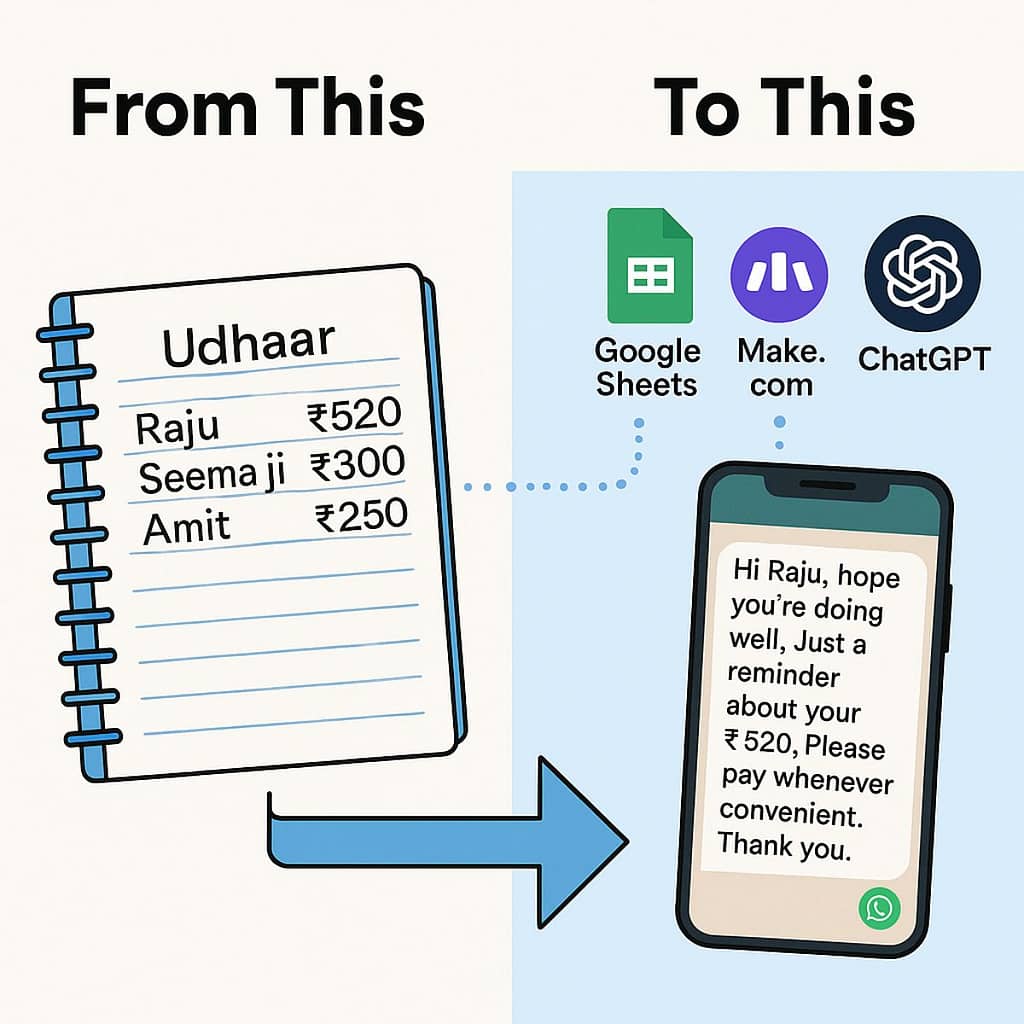
The beauty here is that your customer feels respected. You don’t have to spend emotional energy drafting or worrying about what to say. The AI handles the language, and you handle your business.
A Simple Workflow That Anyone Can Try
Let’s picture the journey from your handwritten notebook to an AI-powered system.
First, you replace the notebook with a digital record — even a free Google Sheet will do. Each line becomes one entry, with the customer’s name and amount. Next, you connect this sheet to AI using a simple drag-and-drop tool like Make.com. You don’t need coding skills. Once connected, the AI drafts reminders and pushes them through WhatsApp Business.
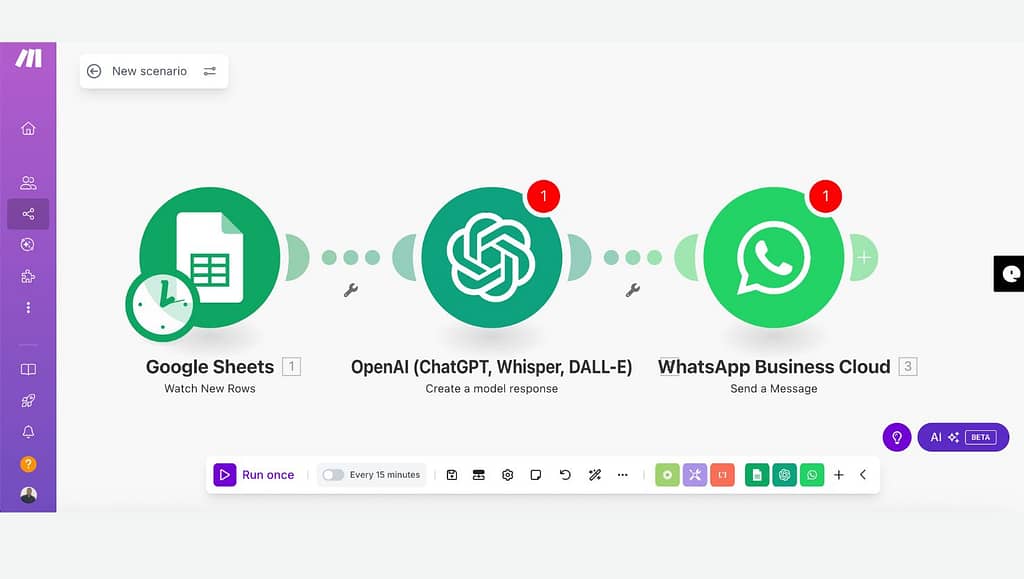
What was once a messy register and hours of chasing suddenly becomes a smooth, automatic process. You can literally watch your phone send polite nudges while you focus on sales.
Why This Approach Works
The power of this system isn’t in fancy technology — it’s in consistency. Reminders go out on time, every time. Customers don’t feel insulted, because the language is polite and friendly. And most importantly, you save precious hours every week that you can reinvest in your shop or your family.
A kirana owner I spoke with recently told me, “Jagdeep, after using reminders like this, I not only recovered payments faster but also felt more relaxed. I stopped dreading those conversations.”
This is what AI is supposed to do — reduce stress, not add to it.
Tools You Can Start With Today
You don’t need a big setup or a degree in technology. All you need are three simple things:
- Google Sheets to track udhaar.
- Make.com to connect everything automatically.
- ChatGPT or Deepseek AI to write the polite reminders.
That’s it. Three simple tools, and you’re ready to run.
Before vs After AI: A Small Story
Before AI, you’re sitting with a notebook at night, flipping through entries, debating whether to call Seema ji about her ₹300. You finally send a text, but you worry she might feel offended.
After AI, Seema ji gets a gentle WhatsApp reminder on the right day, without you lifting a finger. She replies, “Thanks for reminding, I’ll send it tomorrow.” The money comes in, and the relationship stays intact.
One small change in workflow, but a massive change in peace of mind.
Udhaar is part of doing business in India, but it doesn’t have to be a source of stress. With AI, even the smallest shop can manage credit smoothly, protect customer relationships, and keep cash flowing.
AI is not here to replace your trust. It’s here to protect it — by making reminders respectful and payments timely.
If you want ready-to-use workflows, prompts, and tools explained in plain English, I share them every week in my newsletter AI in Plain English. Subscribe today — and start working smarter, not harder.







